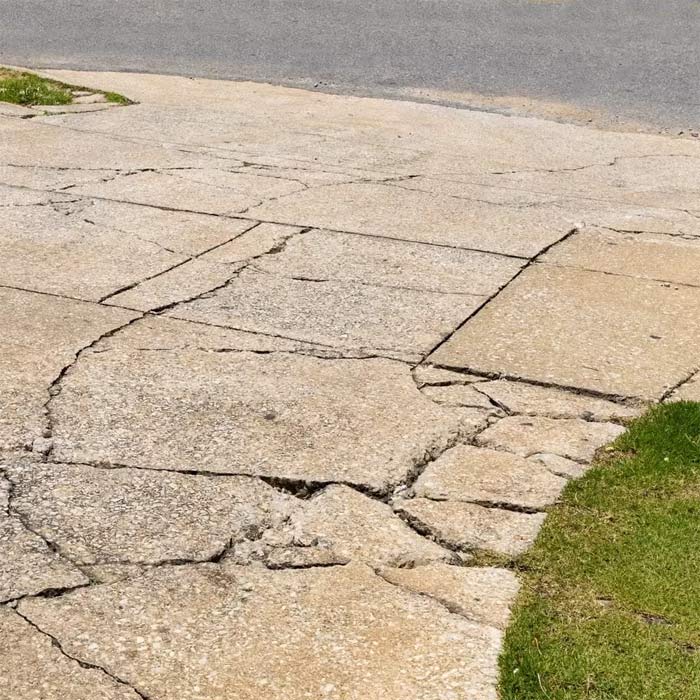Advantages of Asphalt Over Concrete

Asphalt and concrete are two common materials used for driveways and parking lots. While both materials have their advantages and disadvantages, asphalt has many benefits that do not apply to concrete. Here are some of the advantages of asphalt that set it apart from concrete:
Asphalt is generally less expensive than concrete, making it a cost-effective option for driveways and parking lots. Asphalt is made from crude oil, which is a readily available and affordable resource. In contrast, concrete is made from cement, which is more expensive and requires more energy to produce.
Asphalt can be installed quickly, usually within a day or two, which minimizes disruption to daily activities. This is because asphalt can be laid in a single layer, while concrete requires multiple layers and needs time to cure between layers. The quick installation of asphalt allows for a shorter construction timeline and less inconvenience for property owners.
Asphalt has a faster curing time than concrete. This means that it can be used sooner after installation, which minimizes disruption to daily activities. Additionally, it reduces the amount of time that the area needs to be closed off to traffic.
Asphalt is easier to repair than concrete. If there is damage to the surface, it can be repaired by removing the damaged area and replacing it with new asphalt. This is a less labor-intensive process than repairing concrete, which can require extensive drilling and patching.
Asphalt is relatively easy to maintain, requiring less frequent sealing and crack filling to ensure its longevity. And while both materials require periodic maintenance, asphalt is a less expensive material than concrete.
Asphalt is a more flexible material than concrete, which means it can better handle minor shifts in the underlying surface. This makes it less likely to crack or suffer damage from minor ground movements.
Asphalt has a porous surface that allows water to drain through it, which reduces the likelihood of standing water and puddles. This is particularly important in areas with heavy rainfall, as standing water can lead to erosion and damage to the pavement. In contrast, concrete has a non-porous surface, which means that water can collect on the surface and lead to problems such as surface deterioration and cracking, not to mention puddles that make it difficult to walk on.
Asphalt provides better traction, particularly in wet conditions. This is because the surface of asphalt is rougher than concrete, which provides better grip for vehicle tires and reduces the risk of skidding and accidents. The rough texture of asphalt also provides better traction for pedestrians, reducing the risk of slips and falls.
Asphalt provides improved safety compared to concrete. The rough texture of asphalt provides better traction for vehicles and pedestrians, reducing the risk of accidents and slips. Additionally, asphalt is a dark color, which absorbs heat from the sun and helps to melt snow and ice more quickly, reducing the risk of slip and fall accidents.
Asphalt is a quieter option than concrete. This is because the porous surface of asphalt helps to absorb sound waves, reducing the amount of noise that bounces off hard surfaces. This can be particularly beneficial in urban areas where noise pollution can be a major problem.
Asphalt is more resilient than concrete when it comes to extreme weather conditions. Concrete is prone to cracking and heaving in areas with temperature fluctuations, while asphalt is more flexible and can expand and contract with temperature changes. This means that asphalt is better able to withstand freeze-thaw cycles, reducing the likelihood of cracks and other forms of damage.
Asphalt absorbs more heat from the sun than concrete, which can help melt snow and ice more quickly, reducing the need for salting and other de-icing measures. This is particularly beneficial in areas with heavy snowfall or ice accumulation.
Concrete is more prone to salt damage than asphalt. This is because concrete has a denser, non-porous surface that can trap salt and other de-icing chemicals, leading to damage and deterioration over time. Additionally, if the concrete has not been sealed properly, salt can penetrate the surface and cause cracking or spalling.
Asphalt requires less energy to produce than concrete, so it has a lower carbon footprint. It is made from recycled materials, such as old tires and shingles, which reduces waste and conserves natural resources. Additionally, asphalt can be recycled and reused at the end of its life cycle, reducing the amount of waste that goes to landfills, and conserving natural resources.





 856-302-5212
856-302-5212 email us
email us 7 Days a Week
7 Days a Week








